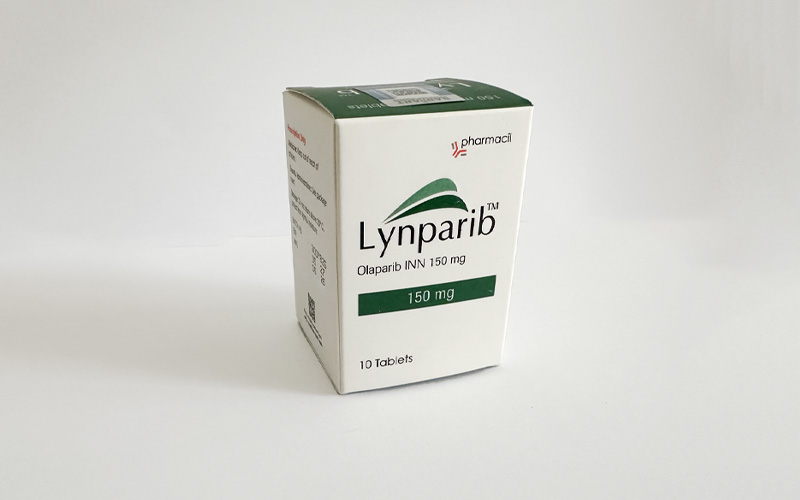Olaparib (generic name: Olaparib, brand name: Lynparza®) is the first FDA- and EMA-approved oral PARP inhibitor, developed by AstraZeneca. It selectively inhibits the enzyme poly (ADP-ribose) polymerase (PARP), which plays a crucial role in DNA repair. By blocking the DNA repair pathway, Olaparib causes accumulation of DNA damage, ultimately leading to cancer cell death.
Since its initial approval in 2014, Olaparib has become a pioneering targeted therapy for multiple BRCA-mutated cancers, including ovarian, breast, pancreatic, and prostate cancers. Compared with traditional chemotherapy, Olaparib offers the advantages of precision targeting, oral administration, and generally manageable side effects, such as fatigue, nausea, anemia, and leukopenia.
Olaparib is indicated for the treatment of adult patients with the following conditions:
Ovarian Cancer: Maintenance treatment of platinum-sensitive relapsed ovarian cancer with or without BRCA mutation.
Breast Cancer: Treatment of HER2-negative locally advanced or metastatic breast cancer in patients with germline BRCA mutations.
Pancreatic Cancer: Maintenance therapy in patients with germline BRCA-mutated metastatic pancreatic adenocarcinoma whose disease has not progressed after at least 16 weeks of first-line platinum-based chemotherapy.
Prostate Cancer: Treatment of metastatic castration-resistant prostate cancer (mCRPC) in patients with homologous recombination repair (HRR) gene mutations including BRCA1/2.
Recommended Dose: 300 mg orally twice daily (total daily dose: 600 mg) continued until disease progression or unacceptable toxicity.
Administration: Tablets should be swallowed whole with water with or without food. Do not crush cut or chew the tablets.
Dose Adjustments: In cases of severe adverse reactions (e.g. hematologic toxicity) the dose may be reduced to 250 mg twice daily or further to 200 mg twice daily if needed.
Special Populations: No dosage adjustment is required based on age body weight or gender. Dose reduction may be required for patients with moderate renal impairment.
